37 is the potential-energy diagram for a 20 g particle that is released from rest at x = 1.0 m.
1610s, "an illustrative figure giving only the outlines or general scheme of the object;" 1640s in geometry, ";a drawing for the purpose of demonstrating the properties of a figure;" from French diagramme, from Latin diagramma ";a scale, a musical scale," from Greek diagramma "geometric figure, that which is marked out by lines," from diagraphein "mark out by lines, delineate," from dia "across, through" (see dia-) + graphein "write, mark, draw" (see -graphy). Related: Diagrammatic; diagrammatically. The verb, "to draw or put in the form of a diagram," is by 1822, from the noun. Related: Diagrammed; diagramming. Question: The potential-energy diagram for a 20 g particle that is released from rest at x = 1.0 m. Will the particle move to the right or to the left?
The entire entry for X in Johnson's dictionary (1756) is: ";X is a letter, which, though found in Saxon words, begins no word in the English language." Most English words beginning in -x- are of Greek origin (see chi) or modern commercial coinages. East Anglian in 14c. showed a tendency to use -x- for initial sh-, sch- (such as xal for shall), which didn't catch on but seems an improvement over the current system. As a symbol of a kiss on a letter, etc., it is recorded from 1765. In malt liquor, XX denoted "double quality" and XXX "strongest quality" (1827). Algebraic meaning "unknown quantity" (1660 in English, from French), sometimes is said to be from medieval use, originally a crossed -r-, in that case probably from Latin radix (see root (n.)). Other theories trace it to Arabic (Klein), but a more prosaic explanation says Descartes (1637) took x, y, z, the last three letters of the alphabet, for unknowns to correspond to a, b, c, used for known quantities. Used allusively for "unknown person" from 1797, "s
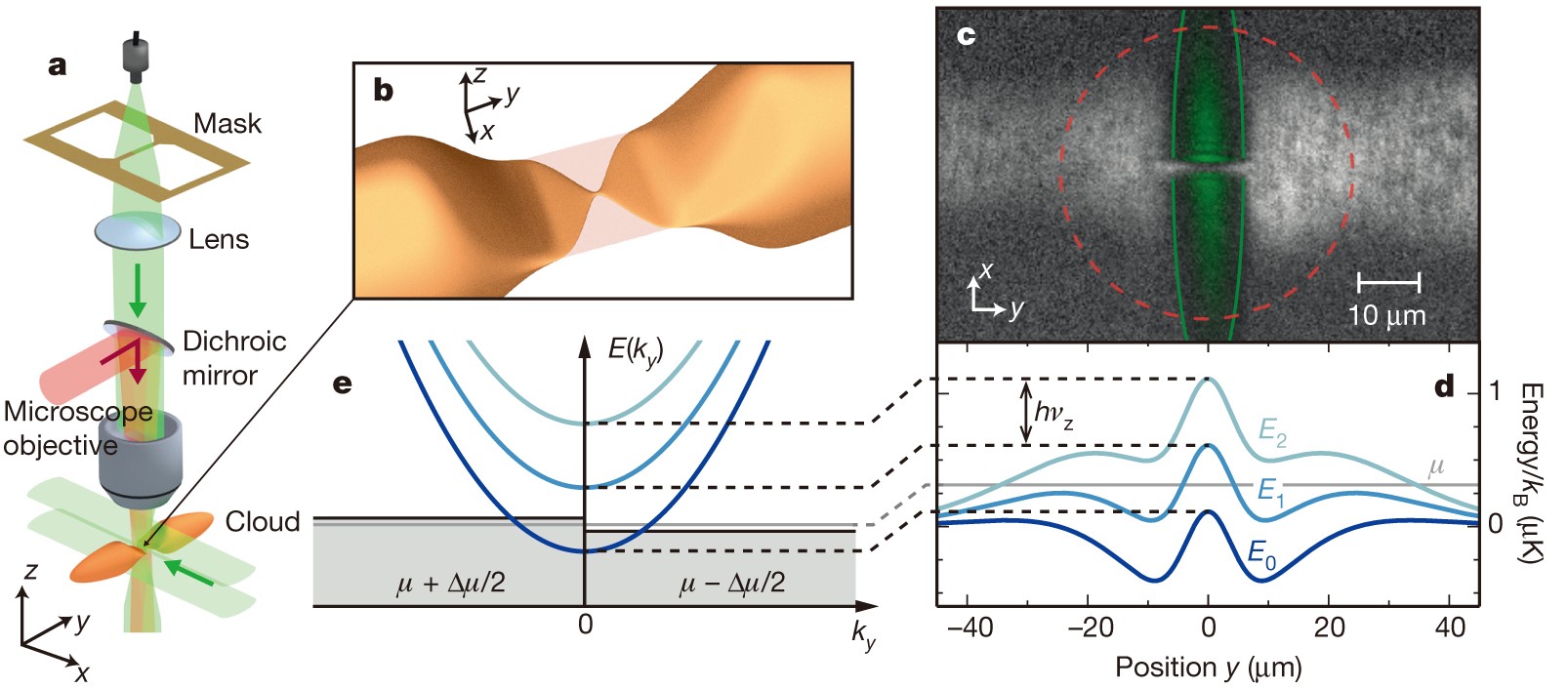
Is the potential-energy diagram for a 20 g particle that is released from rest at x = 1.0 m.
The Vaccine Is Killing Millions of People. The number of people dying from the Covid vaccines is being covered up. The official numbers are in the tens of thousands, which is more than enough to halt all covid vaccines on the planet. The actual number of people injured or dead after receiving the vaccine is already in the millions. Jul 14, 2021 — || FIGURE EX10.24 is the potential-energy diagram for a 20 g particle that is released from rest at x = 1.0 m. a. Will the particle move ...1 answer · Top answer: a. From the graph, we have PE (Potential energy) = Total energy = 4 J (since the particle is released from rest, hence the kinetic energy will be zero) ... Model: For an energy diagram, the sum of the kinetic and potential energy is a constant. Visualize: The particle with a mass of 500 g is released from rest ...9 pages
Is the potential-energy diagram for a 20 g particle that is released from rest at x = 1.0 m.. is the potential-energy diagram for a 20g particle that is released from rest at x=1.0m a. Will the particle move to the right or to the left?4 answers · Top answer: Okay, so there in chapter 10 Problem 29 here. So we have this craft here that shows the potential ... main page; 250; Neutral B-meson decay and the search for hybrid mesons Old English þæt, "that, so that, after that," neuter singular demonstrative pronoun (";A Man's a Man for a' that"), relative pronoun ("O thou that hearest prayer"), and demonstrative adjective ("Look at that caveman go!"), corresponding to masc. se, fem. seo. From Proto-Germanic *that, from PIE *tod-, extended form of demonstrative pronominal base *-to- (see -th (1)). With the breakdown of the grammatical gender system, it came to be used in Middle English and Modern English for all genders. Germanic cognates include Old Saxon that, Old Frisian thet, Middle Dutch, Dutch dat "that," German der, die, das "the." Generally more specific or emphatic than the, but in some cases they are interchangeable. From c. 1200 opposed to this as indicating something farther off. In adverbial use ("I'm that old"), in reference to something implied or previously said, c. 1200, an abbreviation of the notion of "to that extent," "to that degree." As a conjunction ("Not that I loved Caesar less, but that I loved Rome more") it was late 14c., ";a bit or fragment, small part or division of a whole, minute portion of matter," from Latin particula "little bit or part, grain, jot," diminutive of pars (genitive partis) ";a part, piece, division" (from PIE root *pere- (2) "to grant, allot"). In grammar, ";a part of speech considered of minor consequence or playing a subordinate part in the construction of a sentence" (1530s). Particle physics, which is concerned with sub-atomic particles, is attested from 1969. In construction, particle board (1957) is so called because it is made from chips and shavings of wood.
Jul 14, 2021 — The figure (Intro 1 figure) is the potential-energy diagram for a 20 g particle that is released from rest at x = 1.0 m. Problem: The figure(Figure 1) is the potential-energy diagram for a 20 g particle that is released from rest at x=1.0m.1. Will the particle move to the right or ...1 answer · Top answer: 1.The particle will move to the right.2.ΔK.E = - ΔUThe decrease in potential energy is equal to the gain in kinetic energy.At x = 1m, the potential ... The low corona, near the surface of the Sun, has a particle density around 10 15 m −3 to 10 16 m −3. [92] [g] The average temperature of the corona and solar wind is about 1,000,000-2,000,000 K; however, in the hottest regions it is 8,000,000-20,000,000 K. [93] Although no complete theory yet exists to account for the temperature of the ... prefix usually meaning "away, opposite, completely," from Old English for-, indicating loss or destruction, but in other cases completion, and used as well with intensive or pejorative force, from Proto-Germanic *fur "before, in" (source also of Old Norse for-, Swedish för-, Dutch ver-, Old High German fir-, German ver-); from PIE *pr-, from root *per- (1) "forward," hence "in front of, before, toward, near, against." In verbs the prefix denotes (a) intensive or completive action or process, or (b) action that miscarries, turns out for the worse, results in failure, or produces adverse or opposite results. In many verbs the prefix exhibits both meanings, and the verbs frequently have secondary and figurative meanings or are synonymous with the simplex. [Middle English Compendium] Probably originally in Germanic with a sense of "forward, forth," but it spun out complex sense developments in the historical languages. Disused as a word-forming element in Modern English. Ultimately from the same root as fore (adv
"cross out with an ';X'," 1942, from X. [to repose; to cease from action] Middle English resten, from Old English ræstan, restan "take repose by lying down; lie in death or in the grave; cease from motion, work, or performance; be still or motionless; be undisturbed, be free from what disquiets; stand or lie as upon a support or basis," from Proto-Germanic *rastejanan (source also of Old Saxon restian, Old Frisian resta, Middle Dutch rasten, Dutch rusten, Old High German reston, German rasten, Swedish rasta, Danish raste "to rest";), a word of doubtful etymology (compare rest (n.1)). Transitive senses "give repose to; lay or place, as on a support or basis" are from early 13c. Meaning "cease from, have intermission" is late 14c., also "rely on for support." In law, "voluntarily end the presentation of evidence to allow presentation of counter-evidence by the opposing party," by 1905. Related: Rested; resting. To rest up "recover one's strength" is by 1895, American English. To rest in "remain confident or hopeful in" is by late 14c., biblical. Resti Problem 25E. Figure EX10.25 is the potential-energy diagram for a 20 g particle that is released from rest at x = 1.0 m. a. Will the particle move to the ...1 answer · Top answer: ?Solution 25E Part (a) Step 1 of 4: Our aim is to find the direction of the particle which is left free from the point x = 1 m. The total energy ... 13th letter of the English alphabet, from Greek mu, from Semitic mem. It represents a very stable and unchanging sound in Indo-European, described by Johnson as ";a kind of humming inward." The Roman symbol for 1,000; sometimes used in this sense in English 15c.-16c.; but in late 20c. newspaper headlines it stands for million. As a thickness of type, from 1680s (commonly spelled out, em).
assimilated form of ad- "to, toward, before" before stems beginning in -t-; see ad-. In Old French and Middle English regularly reduced to a-, later restored.
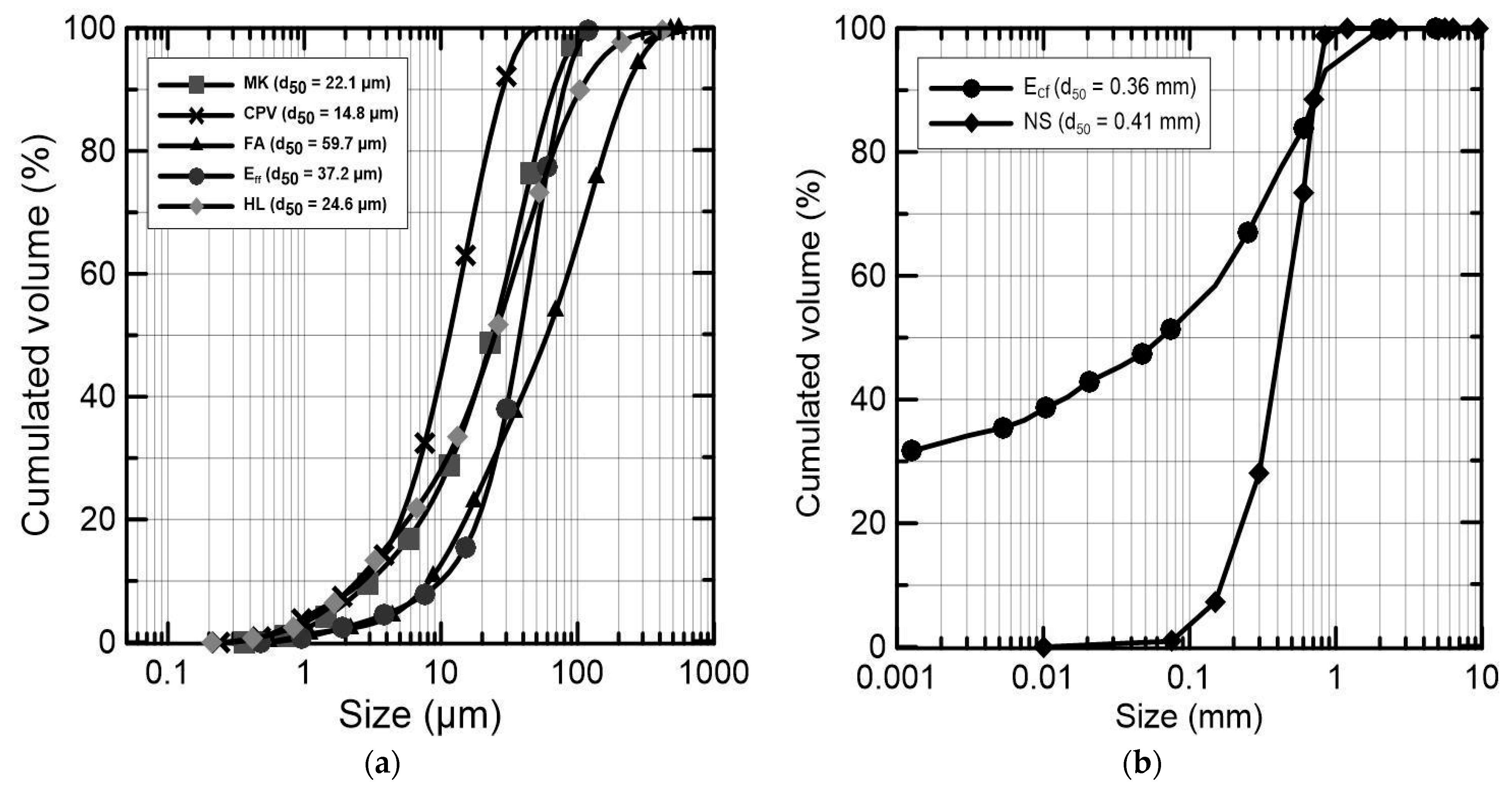
Sustainability Free Full Text Thermal Energy Analysis And Life Cycle Ghg Emissions Assessments Of Innovative Earth Based Bamboo Plastering Mortars Html
seventh letter of the alphabet, invented by the Romans; a modified gamma introduced c. 250 B.C.E. to restore a dedicated symbol for the ";g" sound. For fuller history, see C. Before the vowels -e-, -i-, and -y-, Old English initial g- changed its sound and is represented in Modern English by consonantal y- (year, yard, yellow, young, yes, etc.). In get and give, however, the initial g- seems to have been preserved by Scandinavian influence. As a movie rating in the U.S., 1966, standing for general (adj.). Standing for gravity in physics since 1785.
Model: For an energy diagram, the sum of the kinetic and potential energy is a constant. Visualize: The particle with a mass of 500 g is released from rest ...9 pages
Jul 14, 2021 — || FIGURE EX10.24 is the potential-energy diagram for a 20 g particle that is released from rest at x = 1.0 m. a. Will the particle move ...1 answer · Top answer: a. From the graph, we have PE (Potential energy) = Total energy = 4 J (since the particle is released from rest, hence the kinetic energy will be zero) ...
The Vaccine Is Killing Millions of People. The number of people dying from the Covid vaccines is being covered up. The official numbers are in the tens of thousands, which is more than enough to halt all covid vaccines on the planet. The actual number of people injured or dead after receiving the vaccine is already in the millions.
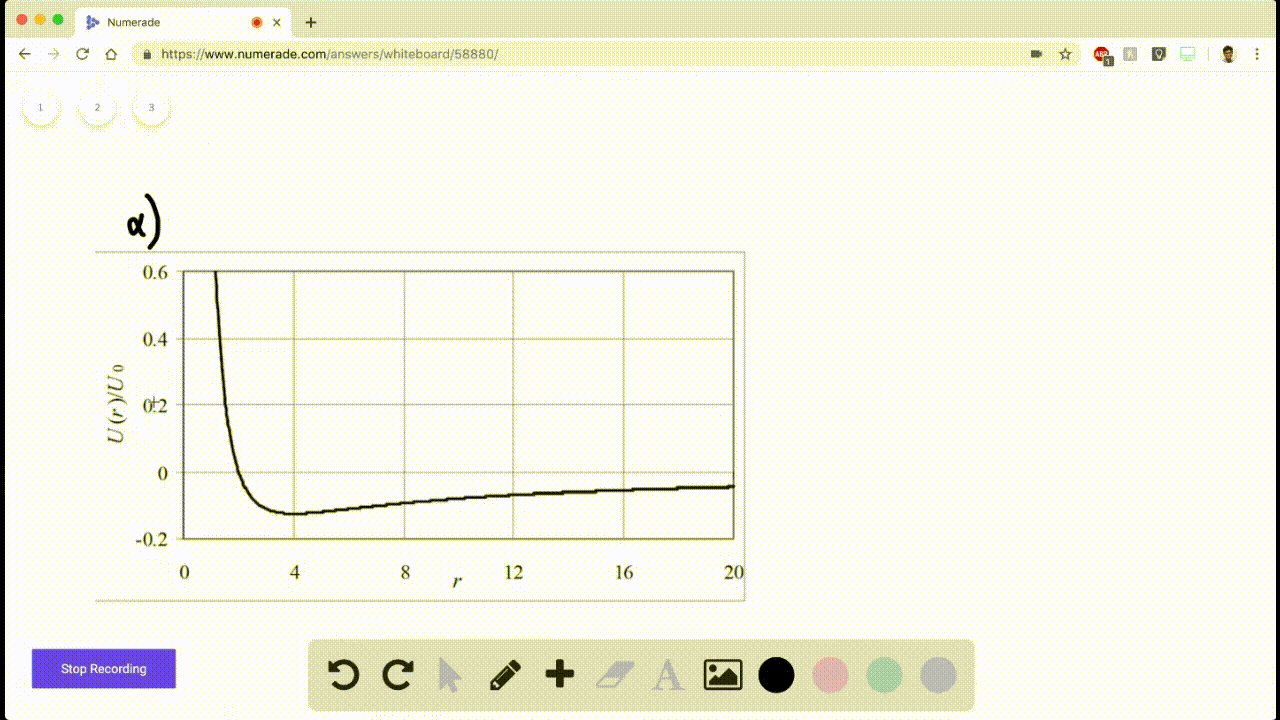
Solved Is The Potential Energy Diagram For A 20 Mathrm G Particle That Is Released From Rest At X 1 0 Mathrm M A Will The Particle Move To The Right Or To The Left How Can You

Molecular Dynamics Simulation For Hydrogen Recycling On Tungsten Divertor For Neutral Transport Analysis Iopscience

In Figure The Variation Of Potential Energy Of A Particle Of Mass M 2kg Is Represented W R T Its X Coordinate The Particle Moves Under The Effect Of The Conservative Force Along The X Axis Which

Essd Towards A Regional High Resolution Bathymetry Of The North West Shelf Of Australia Based On Sentinel 2 Satellite Images 3d Seismic Surveys And Historical Datasets

In Figure The Variation Of Potential Energy Of A Particle Of Mass M 2kg Is Represented W R T Its X Coordinate The Particle Moves Under The Effect Of The Conservative Force Along The X Axis Which

An Expression For The Angle Of Repose Of Dry Cohesive Granular Materials On Earth And In Planetary Environments Pnas

Molecular Dynamics Simulation For Hydrogen Recycling On Tungsten Divertor For Neutral Transport Analysis Iopscience

Figure 8 50 Shows A Plot Of Potential Energy U Versus Position X Of A 0 90 Kg Particle That Can Travel Only Along An X Axis Non Conservative Forces Are Not

Simulating Particle Organic Matter Dispersal Beneath Atlantic Salmon Fish Farms Using Different Resuspension Approaches Sciencedirect
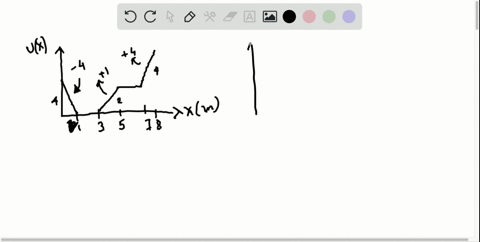
Solved Is The Potential Energy Diagram For A 20 Mathrm G Particle That Is Released From Rest At X 1 0 Mathrm M A Will The Particle Move To The Right Or To The Left How Can You
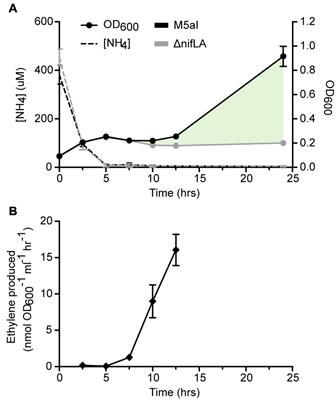
Frontiers Resource Allocation During The Transition To Diazotrophy In Klebsiella Oxytoca Microbiology
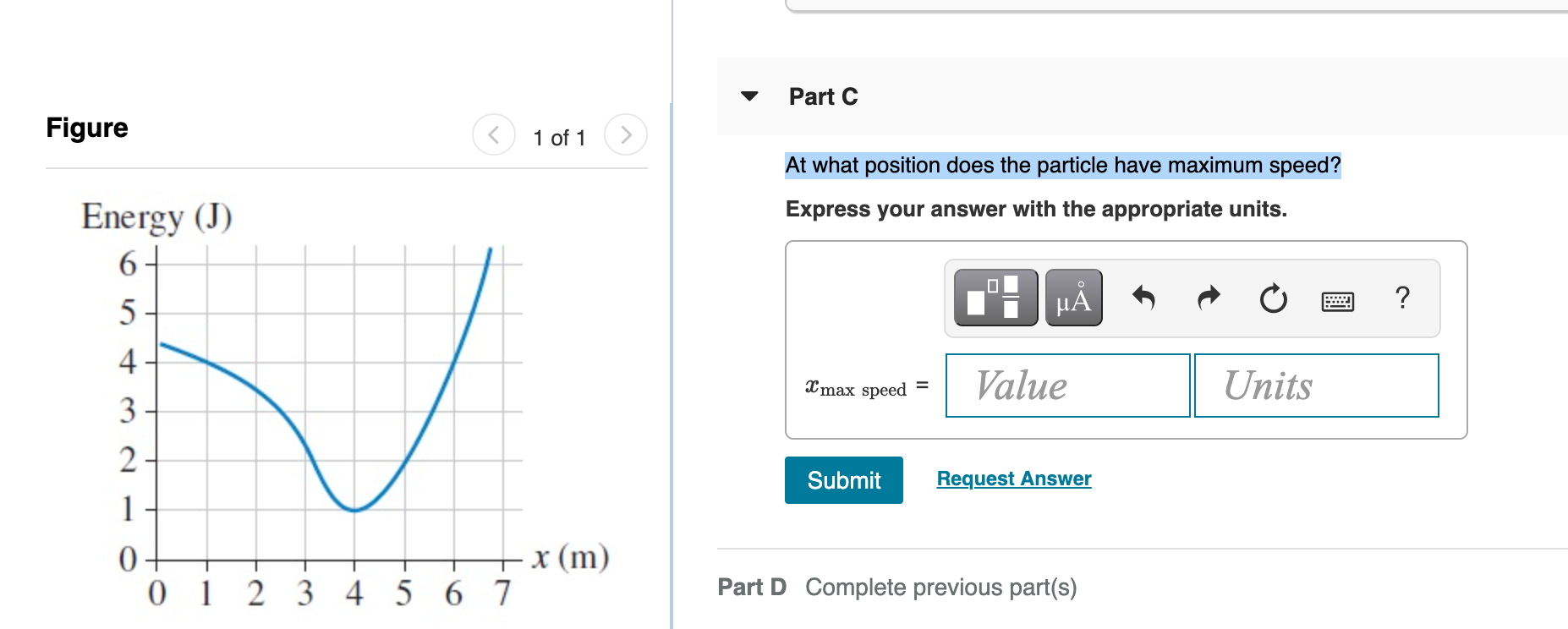
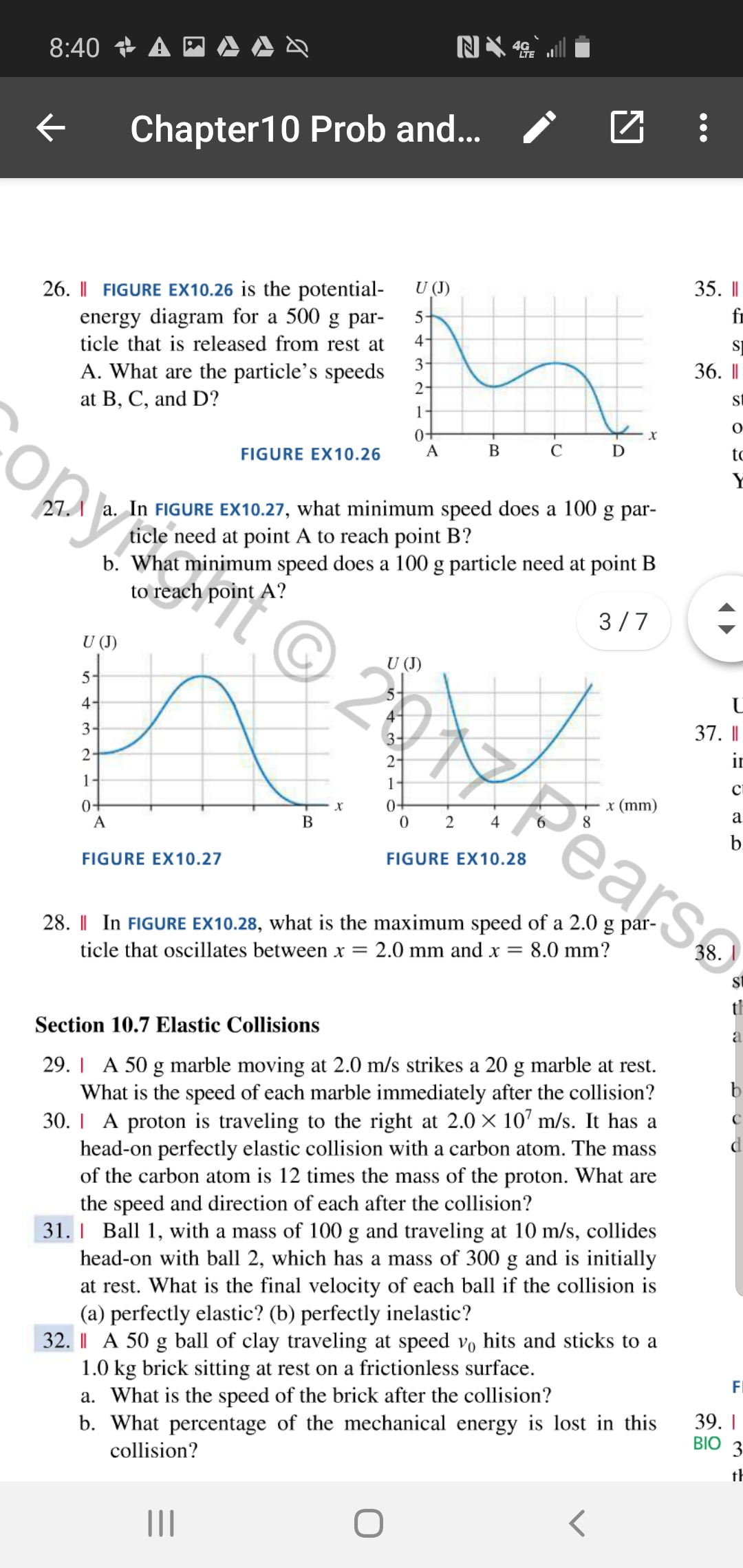


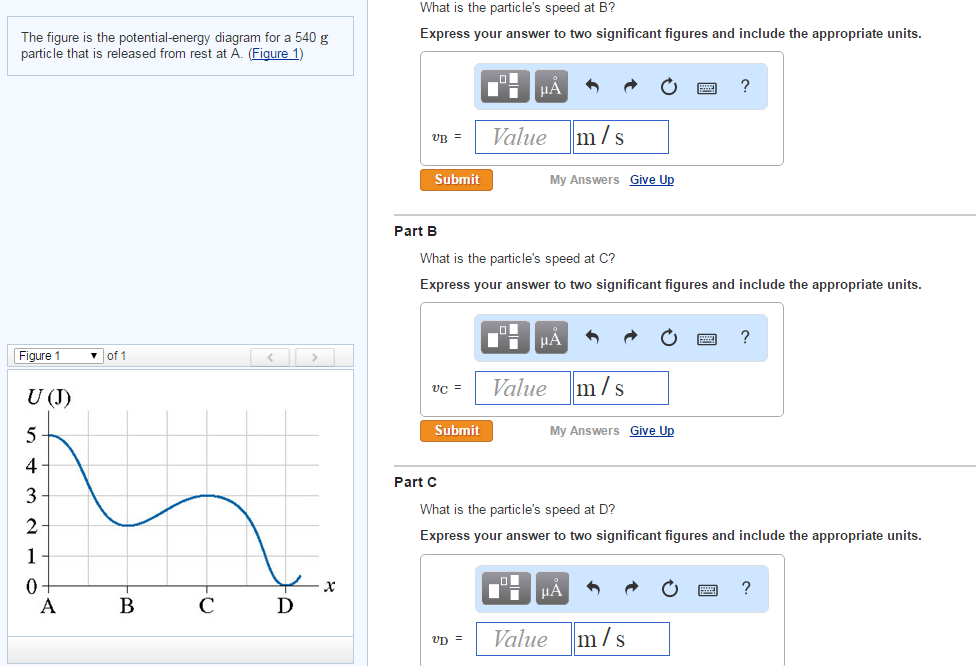



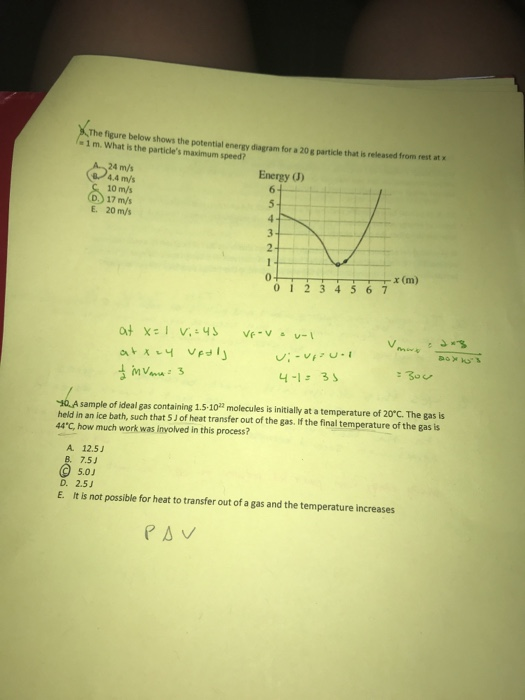
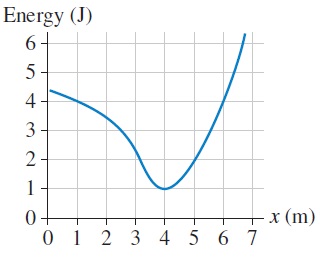


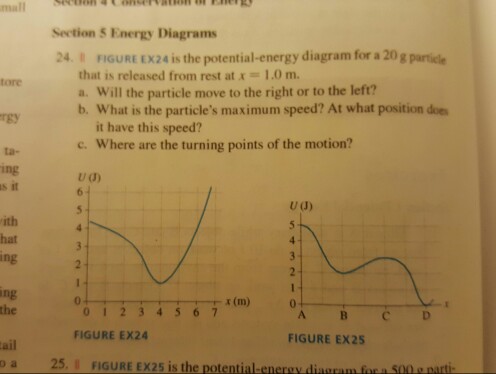


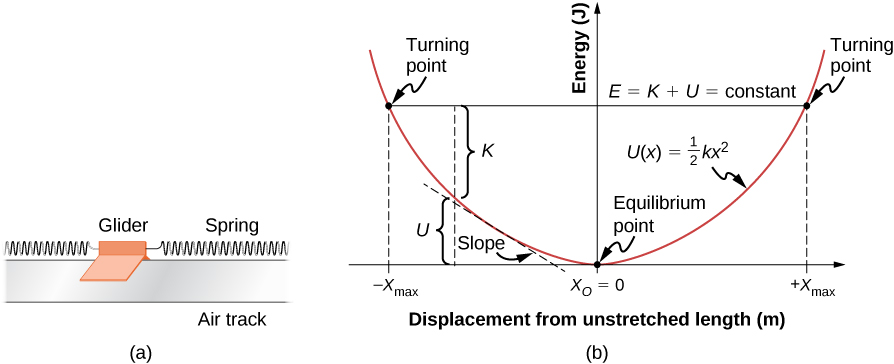

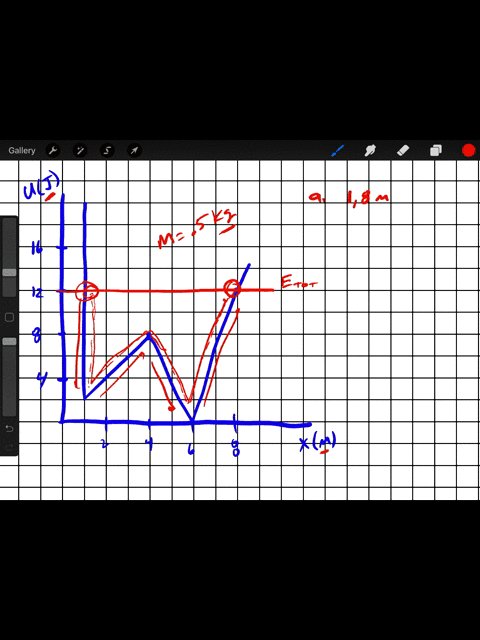
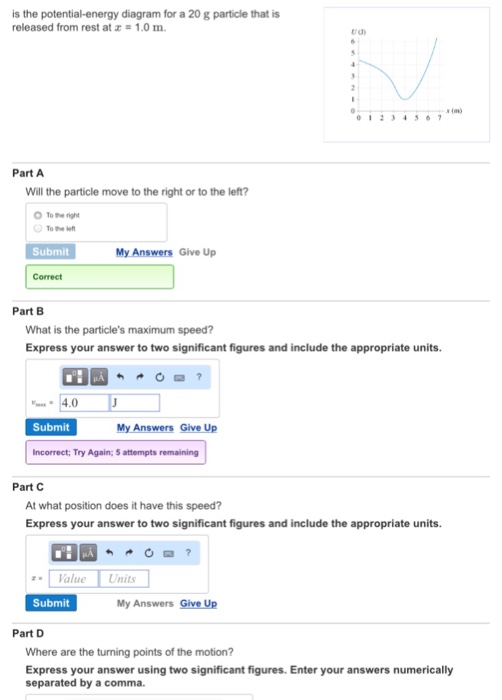
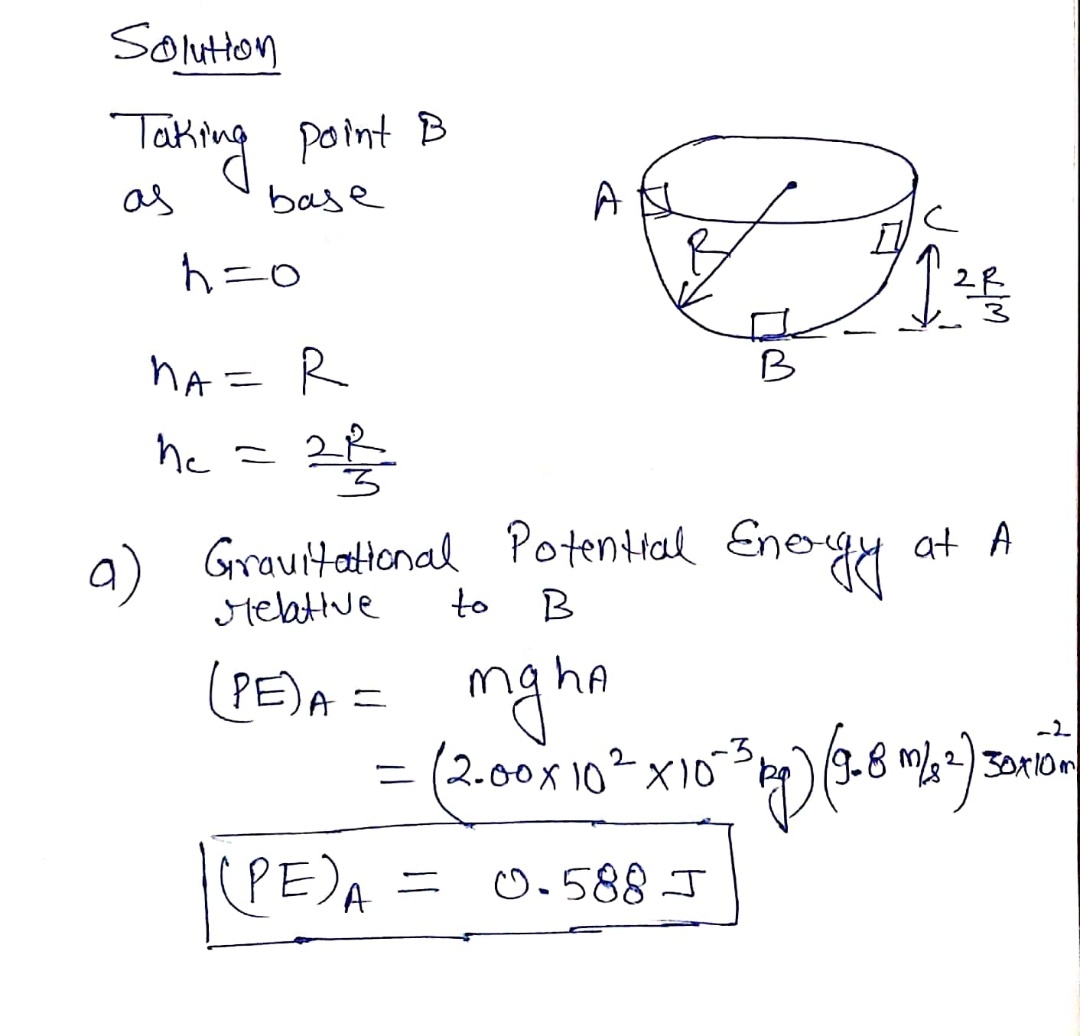
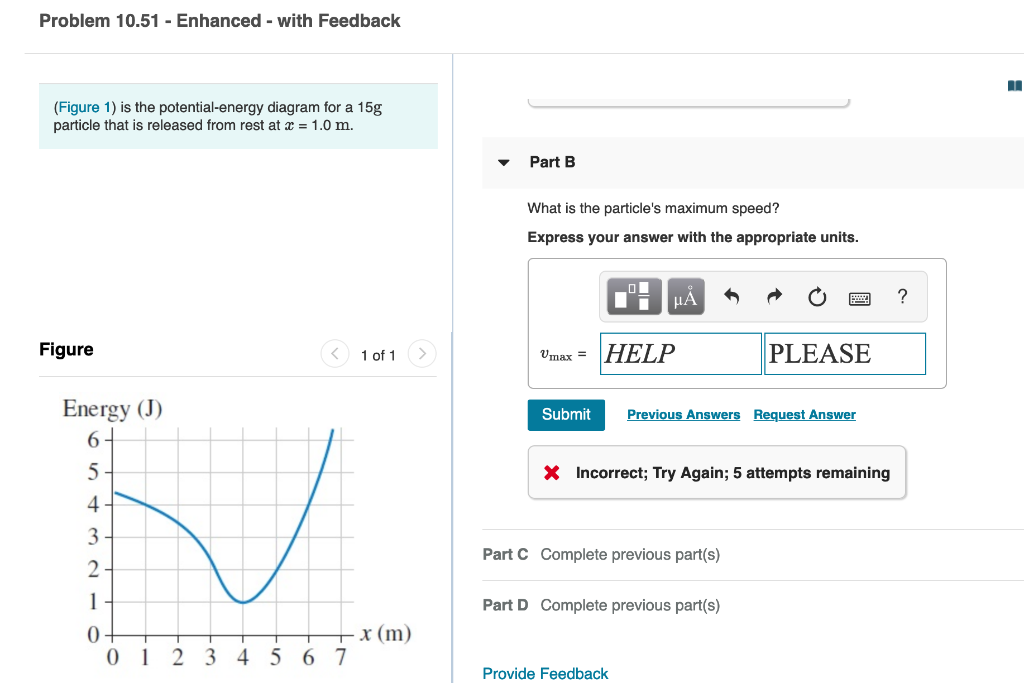
0 Response to "37 is the potential-energy diagram for a 20 g particle that is released from rest at x = 1.0 m."
Post a Comment